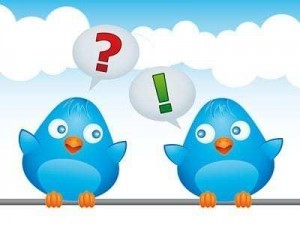
Yet, new research on Twitter shows it is pretty much useless at predicting public opinion. In one example, 59% of people on Twitter said that President Obama did a great job in his first Presidential debate last October. But public opinion research showed that only 20% of Americans actually thought that.
So what is going on? How can Twitter be good at predicting some things, but useless at predicting others? After all, in the case on the research on public opinion, the volume of Tweets was massive, so you would think it would be representative.
It’s all about the kind of people who use Twitter – a mixture of demographics and personality types. The people who use Twitter tend to be those with fast-thinking and fast-reacting personality features. They are not the kind of people who mull over things, who consider all angles and sides to an argument before making a decision. And what kind of people work in the City? Well, yes, they are the kind of people who need to think quickly and react to titbits of information, rather than taking hours to consider things. Any wonder there is a link between Twitter and share price?
Similarly, film-goers are often people who either go to see their favourite star actor – not really caring what the film is about – or go on a whim because they think they’ll like the film. There is no great, intense discussion or debate about a trip to the movies.
However, when it comes to our opinions on political events, for instance, there is sometimes more thoughtful debate and discussion before people make their mind up about a situation. And that means the instant reaction on Twitter may well not reflect what people actually think.
It is all a reminder that even though Twitter is popular and an important tool for business communication we need to take it with a proverbial dose of salt. Tweets about your industry, profession or even you or your business may be representative, but they may also present you with a false picture.
We should all be careful to consider our kinds of customers and how they think. If they are fast-thinkers, reactive kind of people, then Twitter will probably represent their views. But if our customers are more thoughtful and consider things in detail, Twitter may well be leading us in the wrong direction.
